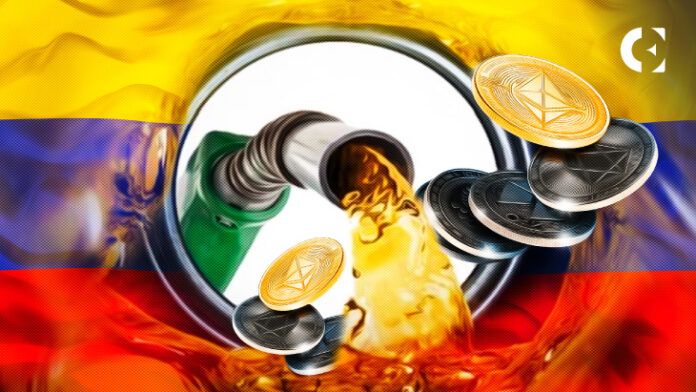- PDVSA now requires digital wallets for oil trades to avoid U.S. banking sanctions.
- Amid sanctions, PDVSA transitions oil sales to the USDT cryptocurrency to maintain financial flow.
- U.S. sanctions push PDVSA to obtain individual trading authorizations, complicating exports.
Amid tightening U.S. sanctions, Venezuela’s state-owned oil company, PDVSA, is escalating its shift towards cryptocurrency for oil transactions as reported by Reuters. Consequently, the company now requires new customers to possess digital wallets for trading. This strategic pivot aims to sidestep restrictions that impede access to traditional banking systems.
Significantly, this move comes after the U.S. Treasury Department decided not to renew a general license, giving companies until May 31 to conclude their dealings under this arrangement. The decision is a response to Venezuela’s stalled electoral reforms. Hence, companies must now seek individual authorizations from the U.S. to deal with PDVSA. This requirement complicates efforts to boost Venezuela’s oil production and exports.
Moreover, PDVSA has adopted the digital currency USDT, commonly known as Tether. Tether is pegged to the U.S. dollar and offers a more stable value, which is critical under the current financial constraints. Additionally, the company has been integrating USDT into its transactions progressively since last year.
However, despite its challenges, cryptocurrency payments in the global oil market remain uncommon where the U.S. dollar is dominant. Moreover, some old contracts have been adapted to include digital currency payments, underscoring the company’s commitment to this new approach.
Furthermore, the shift has necessitated the use of intermediaries, especially for trades with China, to navigate around secondary sanctions imposed by the U.S. in 2020. This reliance on third parties may reduce the share of oil proceeds PDVSA can retain directly.
Venezuelan oil minister Pedro Tellechea remains optimistic. He asserts that PDVSA possesses robust trading strategies that will sustain its operations despite the sanctions return. Oil exports under his leadership have surged, reaching approximately 900,000 barrels per day in March, the highest in four years.
As the May 31 deadline approaches, PDVSA’s focus on digital transactions could become a model for other sanctioned states seeking similar solutions to circumvent financial barriers. This development reflects the changing space of international trade and signals a potential shift in how global oil transactions could be conducted in the future.
Disclaimer: The information presented in this article is for informational and educational purposes only. The article does not constitute financial advice or advice of any kind. Coin Edition is not responsible for any losses incurred as a result of the utilization of content, products, or services mentioned. Readers are advised to exercise caution before taking any action related to the company.










